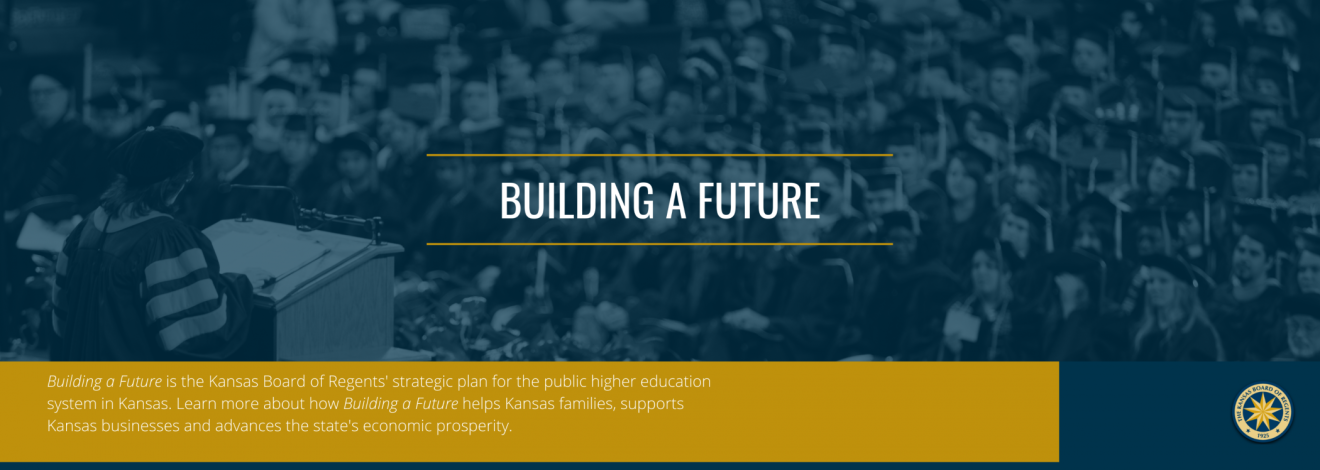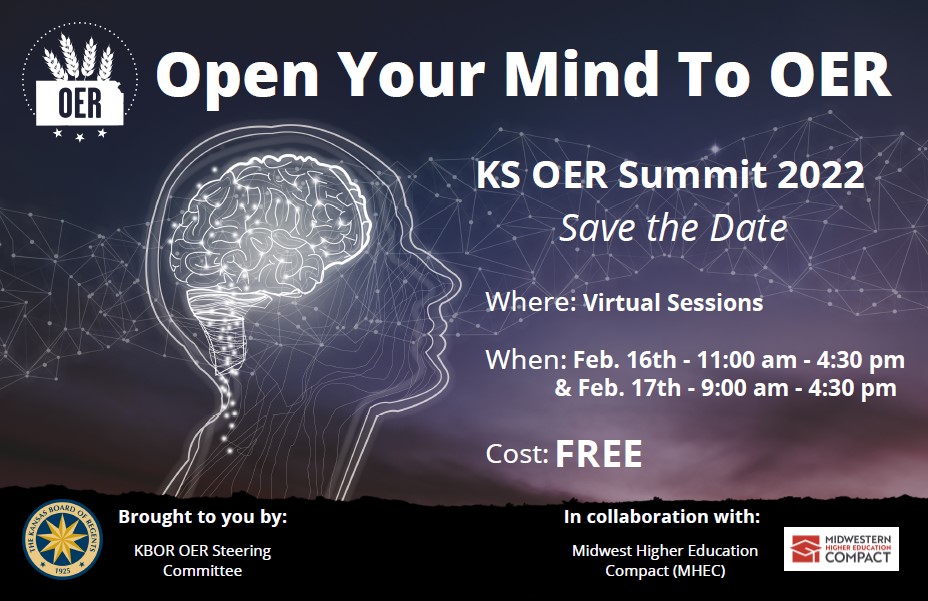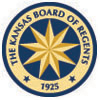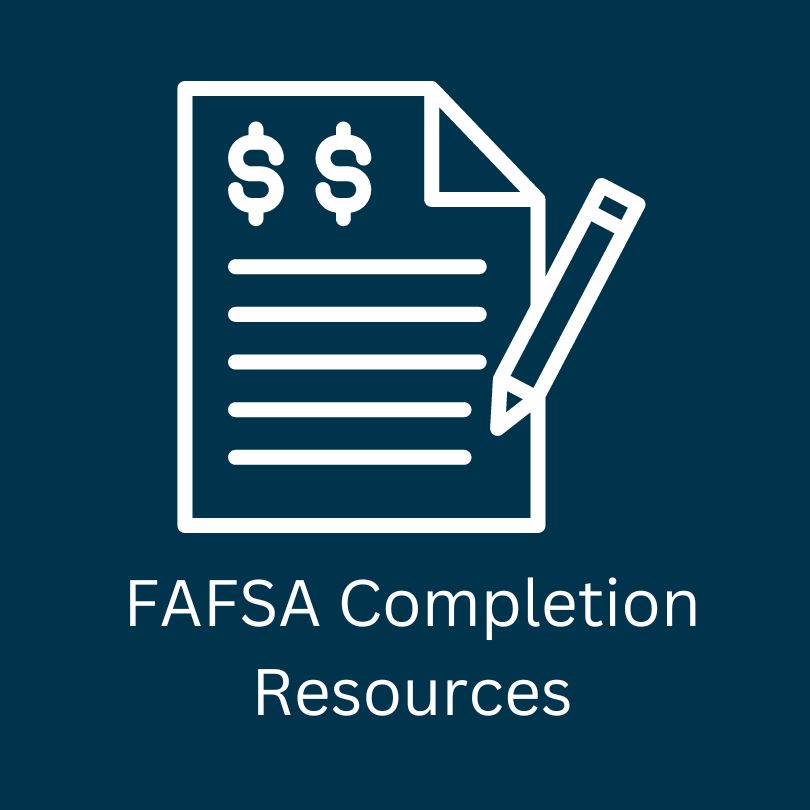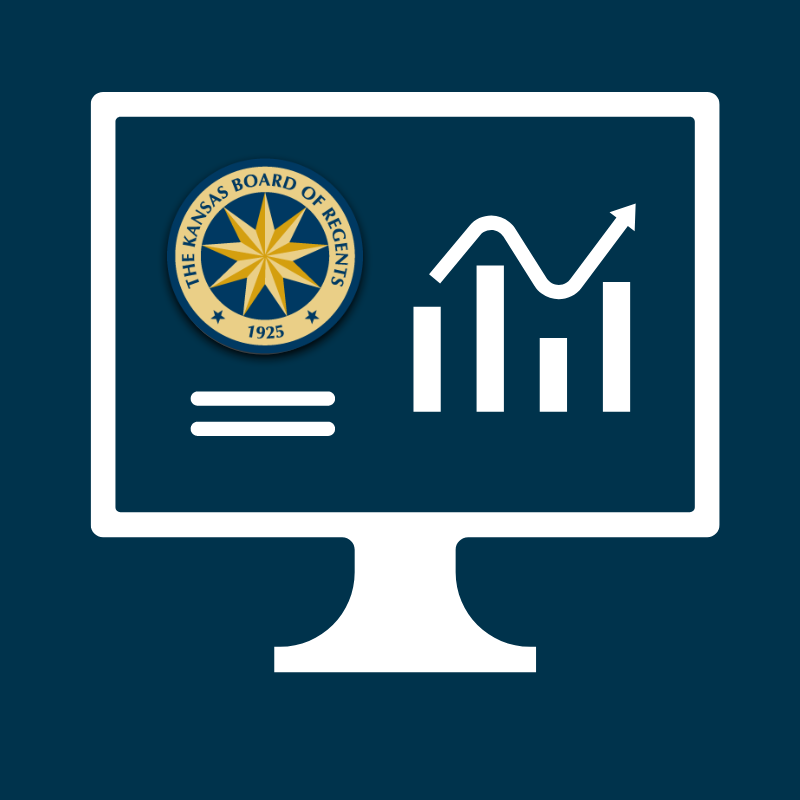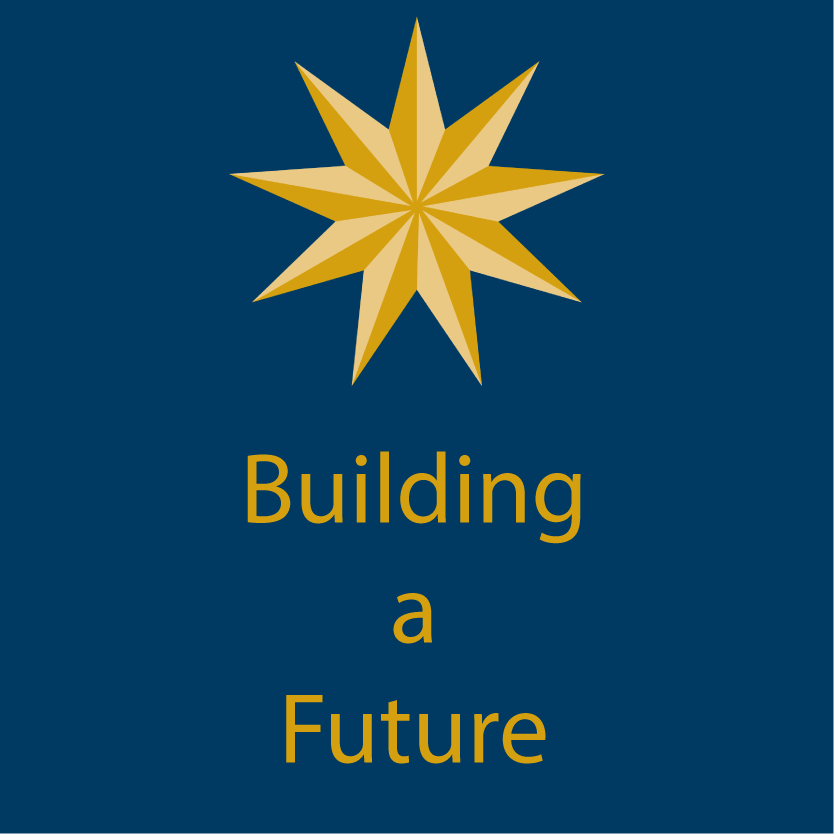The following are resources faculty and staff members may utilize to help support OER implementation across institutions.
| BCCampus | Resources to help faculty adopt, adapt, and evolve their teaching and learning practices to create a better experience for students - includes an Open Textbook database |
| Digital Commons (bepress) | Solution to openly publish, manage and showcase journals, conference proceedings, open educational resources, books, campus newsletters and magazines |
| Floe | Inclusive Learning Design handbook to assist teachers, content creators, web developers, and others in creating adaptable and personalized resources |
| LibreTexts | Free online textbook library for accessing, developing, and sharing texts |
| Manifold | Open source platform for scholarly publishing that fosters community and encourages discussion |
| Pressbooks | Open textbook creation software for retaining, reusing, revising, remixing, and redistributing openly licensed textbooks and educational materials |
| OER Commons | Public digital library for exploring, creating, and collaborating with educators around the world |
| OpenStax | Platform for publishing high-quality, peer-reviewed, openly licensed college textbooks that are free or low cost |
| Open Textbook Library | Textbooks that have been funded, published, and licensed to be freely used, adapted, and distributed |
| SPARC | Global coalition committed to making Open the default for research and education |
| Open Education Creative Commons | Works to minimize barriers to effective education, supporting the CC mission through education, training, advocacy and outreach on using open licenses and open policies to maximize benefits of open education |
| Marking Open and Affordable Courses: Best Practices and Case Studies from Mavs Open Pressavs Open Press | The first and only guide for institutions navigating the uncharted waters of course material markings |
| Open Language Resource Center at The University of Kansas | Free resource for high-quality, openly licensed curricular materials for foreign languages |
| Skills Commons | A free and open digital library of workforce training materials - browse by industry, credentials, or material type |
| Community College Consortium for OER | Consortium committed to expanding access to education and increasing student success through adoption of OER policy, practices, and resources |
Course Recommendations
These resources have been vetted through our institution's faculty representatives and are recommended for the following courses:
English Composition I
- Handbooks
- Readers
General Psychology
College Algebra
- OpenStax: College Algebra
- Optional: Corequisite Support woven into the text
- WeBWorK Exercises (Option for free online homework)
Public Speaking
Statistics
KBOR OER Initiatives System-wide
The KBOR OER Steering Committee distributed a survey to all public higher education institutions in Kansas. The 2021 survey was created to gather baseline information on how Open Educational Resources (OER) are currently being implemented across the various colleges and universities in the state. The process has been repeated annually each spring, and each annual report is linked below:
2023 KBOR OER Survey Full Report
2022 KBOR OER Survey Full Report
2021 KBOR OER Survey Full Report
Additional Resources:
2023 KBOR OER Survey Instrument
2023 KBOR OER Survey Report Presentation
To request the raw survey data, contact
Individual OER Initiatives
Emporia State University
In Fall 2020, ESU began awarding Course Resource Affordability Initiative Grants (CRAIG) to spur faculty adoption, adaption, compilation, and creation of open educational resources. Since Fall 2020, 58 ESU faculty have received CRAIG awards resulting in more than $400,000 in textbook savings for students through Spring 2024. The Student Government Association fully supports OER efforts at ESU, holding a seat on the OER Committee since 2019 and producing resolutions in favor of OER and of CRAIG awards to spur innovation. SGA representatives sitting on the Tuition and Fees Committee unanimously approved of a $5 fee to support CRAIG funding and OER infrastructure. That fee has been approved by KBOR and has been in effect since Fall 2022.
Resources: OER Resources at ESU
updated 10/2024
Fort Hays State University
FHSU’s OER initiative began with AASCU’s Red Balloon Initiative for innovative teaching practices in 2007-2014. As part of the initiative, FHSU formed an Open Educational Resources Committee in 2012 under the leadership of Academic Affairs and the Office of the Provost. Today that committee is co-chaired by the Dean of the Library and the Assistant Vice Provost for Teaching Innovation and Learning Technologies (TILT). In 2017, the OER committee administered a faculty survey about perceptions of OERs. In 2019, FHSU’s Faculty Senate made a resolution in support of zero-cost course materials.
In collaboration with TILT and Technology Services, the library has offered a series of mini-conferences on open access, copyright, getting started with OERs, and advanced OERs. As of February 2020, FHSU’s executive leadership team approved a new Z-Course Initiative proposed by the OER Committee that will incentivize departments with high-enrollment courses to convert them to use zero-cost course materials. The OER Committee is currently working on implementation.
Resources: Open Textbook Grant Program | FHSU Digital Press Website | FHSU Scholars Repository | Library Guide for OER
Memberships: Open Textbook Network and SPARC
Kansas State University
Since starting in 2012, The Kansas State Open/Alternative Textbook Initiative has saved K-State Students millions by providing grants up to $5000 to instructors who replace their textbook with a resource that is free to use. These resources may be open educational resources, or alternative educational resources that are not open available for use beyond the course. In order to provide greater incentive for adoption, more recently we have introduced a $10/course fee for courses that use an open or alternative educational resource and do not require students to purchase other materials. To make these fee eligible courses easier for students to identify, we have an icon that replaces the textbook icon that normally provides information about the material required by the course.
Resources: Grant Award Application | OER Course Designation
Membership: Open Textbook Network and SPARC
Pittsburg State University
Pittsburg State’s initial interest in OER began in 2015 during the Kaleidoscope Project. At this time the OER Steering Committee was formed in a collaboration between the Provost’s Office and the Center for Teaching, Learning, and Technology. This committee is comprised of faculty and staff representatives as well as a student representative from the Student Government Association. Since its inception, the OER Steering Committee has made great strides in increasing OER awareness and adoption across campus. In 2015, a Zero Textbook Cost (ZTC) designation was added to the course schedule. In 2017, the committee began offering OpenPitt Awards for OER adoption and OpenPitt Grants for OER creation. To date, courses affiliated with the OpenPitt program have saved students over one million dollars in course materials. In 2018, OER was included in the Tenure and Promotion guidelines outlined in the KNEA/PSU contract.
Professional development for OER is also offered on the Pittsburg State campus. Library Services and the Center for Teaching, Learning, and Technology provide workshops on OER basics, locating OER, Lumen Learning, and Open Education Network training. OER faculty champions across campus have also provided sessions on Creative Commons, publishing OER, and using OER during Covid-19. Additionally, Pittsburg State has offered faculty panels on OER implementation and a roundtable discussing OER and Copyright.
Resources: Library Guide for OER I Pitt State Digital Commons I KCCTE Resource Library I Creative Commons Guide
updated 5/2022
The University of Kansas
The University of Kansas has been engaged in sustained support of OER since 2015. There is an active program of outreach and advocacy based in the Libraries, which participates in the Open Education Network (OEN) and maintains a grant program, providing funding up to $5,000 for OER adopters, adapters, and creators at KU. In Spring 2019, KU Libraries launched a Textbook Heroes initiative to recognize outstanding contributions at KU. In AY 17/18, KU was accepted to the OpenStax Institutional Partner Program. In AY 18/19, Student Senate established their own initiatives, including a resolution endorsing OER and the creation of the Student Senate Textbook Affordability Award, as well as participating in statewide OER advocacy and research alongside their Regent's institution peers. In Fall 2020, with the support of Student Senate, KU began marking no-cost and low-cost courses in Enroll & Pay and classes.ku.edu, based on the excellent examples of colleagues at PSU and KSU. KU Libraries supports the use of Pressbooks for the creation of OER.
Resources: Textbook Heroes | OER Grant Initiative | Guide to Open Educational Resources | OER at KU Handout
Memberships: Open Textbook Network, SPARC, and OpenStax Institutional Partner Program
updated 4/2022
Washburn University
Washburn University has a nascent OER project operated by its University Libraries. The initiative is largely information and incentive based. Educational opportunities to learn more about OER are offered by the Open Education Librarian through Washburn’s Center for Teaching and Learning, and individualized sessions with faculty. A small grant program, designed to incentive the adoption of OER, operated by the University Libraries was launched in summer 2019. The Faculty Senate and Student Government of Washburn University are both interested in the role OER will play at the institution in the future.
Wichita State University
Wichita State University is committed to the use of OER, with instructional designers, university libraries, and the university bookstore all helping to promote the adoption of appropriate free resources. WSU launched the Open/Alternative Textbook (OAT) initiative in Spring 2020 to promote, incentivize, and grow the use of freely available resources in classes to reduce the economic impact of textbook costs on the student body.
The program is based on a successful model at K-State and has two components: an OAT course designation for courses using open or alternative textbooks and a grant program to support faculty developing their own no-cost educational resources. Courses with the OAT designation have a $10 course fee, which supports the initiative. Applications for course designations and grants are reviewed by the OAT committee, which consists of stakeholders from across campus.
Resources: Open Alternative Textbook (OAT) Course Designation | OAT Textbook Grant Program
Allen Community College
Allen Community College began successfully implementing OERs in the fall of 2021 with a business course. The system wide transfer course is using an OER textbook for both onsite and online classes. Investigation into other courses that would benefit from using OER materials is ongoing. There are currently three other academic areas that are considering switching to OER textbooks.
updated 4/2022
Barton Community College
Barton Community College continues to further implement OER across the institution recognizing the benefits OER can provide faculty and the support it can provide students. Most recently Barton has launched a Low-Cost Degree Pathway for Barton Online and continues to work with faculty to become OER certified.
Butler Community College
Butler Community College has recently adopted or developed several OER, including texts for Composition I and Composition II. Student savings have been significant: the composition texts are on track to save Butler students 1 million dollars in the 2020-21 academic year. Butler’s OER work has been supported by its OER and Textbook Affordability Teams, Nixon Library, Educational Technology, Faculty Development, and Academic Departments in the form of policy and procedures, web pages, trainings, focused meetings, and two faculty development workshops, Introduction to OER and the Butler OER Development Process. Butler also belongs to the Community College Consortium for Open Educational Resources or CCCOER.
Resources: OER Guide
Dodge City Community College
For the past 6 years, the Openstax Anatomy and physiology textbook has been used at DCCC. Most students download it as a PDF to their computers, but some purchase a print copy through the bookstore or through Amazon. The major reason for doing so was the textbook being used was $200 or $100 to rent for each semester, and thus, many students did not purchase it. Most students were not reading it due to the difficulty level.
One item that has helped with costs is not an OER, but the library subscribes to films on demand, which students can access free. This allows them access to documentaries and old newsreels, as well as scientific advances. Whether or not a professor is using partial or complete OER resources, this is a powerful resource for students.
Fort Scott Community College
Fort Scott Community College is still in the infant stages of using OERs. The Director of Library Services has informed and promoted to educating faculty instructors on what OERs are as well as providing some links to basic OER resources. Instructors are being encouraged to look at OERs, consider them, and use them. Only a few courses are currently utilizing OERs in some form including Introduction to Business, Principles of Microeconomics, Principles of Macroeconomics, College Orientation, Elements of Technical Analysis, General Chemistry I, and General Chemistry II. In addition, the Director of Library Services was appointed as a member of the Kansas Statewide OER Steering Committee.
Garden City Community College
Garden City Community College is committed increasing access to higher education. Outside specific technical programs, all textbooks are provided either through digital textbook subscription or faculty adoption of open educational resources. Early adopters among the faculty are using open textbooks and teaching materials in a variety of courses, including Biology, Anatomy & Physiology, Geography, Economics, Education, English Composition, and Literature. GCCC has a faculty-led working group under the direction of the Curriculum and Instruction Committee that explores policy and procedures for transitioning from traditional instructional materials to OERs and supports that transition with adequate professional development opportunities, both on campus and virtually. Faculty training in OER adoption and adaptation is available on campus from the Director of Library Services, the Director of Instructional Design, and the GCCC representative of the KBOR OER Steering Committee.
updated 9/2024
Hutchinson Community College
HutchCC is proud to provide affordable higher education and recently formalized its support of OER by establishing an Open Education Resource/Zero Textbook Cost Subcommittee. The OER/ZTC Subcommittee has since taken on projects ranging from professional development, facilitating peer mentoring for faculty interested in redeveloping courses to use OER, and tracking student textbook cost savings. Future plans include centralizing training and resources, creating a Low or No Textbook Cost course marking system, building a new OER/ZTC webpage, and providing guidance on common OER issues such as Creative Commons licensing, writing and editing skills, and instructional re-design. Currently, HutchCC offers over 80 courses that use OER or do not require a textbook, with more systemwide transfer courses being re-developed for OER each semester. During the 2023-2024 academic year, it was estimated that use of OER saved students over $300,000.
updated 9/2024
Independence Community College
Independence CC just starting to use OERs on a very limited basis. They have about 5 instructors using them in various forms (OpenStax to self-created). They have started a group that is exploring what, if any, policy and procedure should be followed when moving from traditional classroom materials to OERs. They currently have a loaner program at the bookstore, so it has not been a pressing need for them. The bookstore is exploring some potential changes and so they may be looking at this more in the next few years. They have faculty who are early adopters who are really liking the resources and faculty who claim they will never do this, so it is still transitioning from an informational point to a practical use. The library director started an OER resource page on the library page to support those using OERs and for students doing research.
Current classes that are using them:
- Psychology
- Sociology
- Biology
- Some of our Math courses
Johnson County Community College
For a year and a half, JCCC has had an OER taskforce. In that time, they’ve joined and supported CCCOER and SPARC, awarded 7 mini-grants for implementation and creation, and have conducted several consultations. As they wait to see results with the mini-grants, they’ve also taken a soft survey of OER currently in classrooms, as well as made an OER curriculum option for their Comp I instructors. The activities for this year include more mini-grants, reporting out from previous ones, multiple returning sabbatical members who left to create OER, two taskforce members completing librarian and educator Creative Commons certificate programs, conference attendance, and more professional development.
Resources: Find OER | OER and Copyright
Labette Community College
Labette Community College currently uses OER materials for General Biography, Anatomy & Physiology, World Regional Geography, both US History Survey classes, Matrix Algebra, and American Government. Most of these classes will transfer directly to Kansas universities. Some other classes, particularly in chemistry and math, use instructor-written material that is provided to students at the cost of printing.
Pratt Community College
PCC is at the opening stages of working with OER with the faculty. The VP for instruction has included into the Director of the Learning Resource Center’s responsibilities the opportunity to share the OER message and to champion it on campus. They currently have one science faculty that is experimenting with possible OER inclusion into one of her courses. They are also working to identify adequate / reasonable sources to be able to convert their Comparative World Religion class into an OER class.
The overall status is that they are in the investigative, championing and education stage.
Upcoming OER trainings
OER & Copyright Workshop
Tuesday, October 8, 2024 10am-11am Register Flyer
This webinar is intended to clarify the relationship between OER and traditional copyright. In this session, you’ll engage with our panelists as they share their OER journeys and participate in a roundtable discussion. Participants are encouraged to share their OER experiences, concerns, successes, and questions.
Presenters: Gwen Sibley, Scholarly Communication and Copyright Librarian, Assistant Professor, Kansas State University Libraries
librefest
Monday, October 7, 2024 11am-5pm
October is just around the corner and with it comes the return of LibreTexts' October LibreFest, or OctoberFest. This one day, virtual workshop, will be held on October 7, the day before this year's OpenEd Conference kicks off, from 9-3 PST. OctoberFest is a scaled down version of our annual summer LibreFest workshop and will introduce you to everything Libretexts has to offer, including editing, remixing, and adapting OER. Created by practitioners, for practitioners.
Registration is $50 and includes a discount code to the LibreTexts swag shop. You can register here until October 6.
Past OER Roundtables
These discipline focused, informal, discussion based, virtual sessions are intended for those interested in using Open Educational Resources in their curriculum. In these sessions, panelists will share their OER journeys and participate in a roundtable discussion. Participants are encouraged to share their OER experiences, concerns, successes and questions.
COMMUNICATION COURSES
Wednesday April 17, 2024 2:30pm
This webinar is intended for those interested in using Open Educational Resources in Communication courses.
Panelists: Ashley Page, Fort Scott Community College Communications Instructor, Tonya Neises, Labette
Community College Communication Professor
Education COURSES
Thursday, February 15, 2024 3:30-4:30pm
This webinar is intended for those interested in using Open Educational Resources in Education courses.
Panelists: Renee Cason, FHSU Teacher Education Instructor, Kim Sprecht, BCCC, with more to be added.
Language COURSES
Thursday, November 30, 2023 2:30-3:30pm
This session is intended for those interested in using Open Educational Resources in Language courses.
Panelists: Jonathan Perkins, Director of the KU Open Language Resource Center, Necia Chronister, Coordinator of the KSU German Language Program & Amy Rossomondo, Director of the KU Spanish Language Program
If you are interested in leading a future roundtable or have a subject area you would like to see available, please contact
Past OER Event Recordings
General Education System-Wide Transfer Course OER Recommendations
A full list of course recommendations is located here.
College Algebra - February 26, 2024 at 3:30-4pm - Recording
Public Speaking - February 27, 2024 at 11-11:30am - Recording
General Psychology - February 27, 2024 at 2:30-3pm - Recording
English Composition - February 28, 2024 at 11-11:30am - Recording
Elementary Statistics - February 28, 2024 at 2-2:30pm - Recording
2024 SPRING OER Discipline Roundtables (visit the OER Roundtables webpage)
Using OER in Communications Courses Wednesday, April 17, 2024 2:30 pm (click the title to register)
This webinar is intended for those interested in using Open Educational Resources in Communication courses. In this session, you’ll engage with our panelists as they share their OER journeys and participate in a roundtable discussion. Participants are encouraged to share their OER experiences, concerns, successes, and questions.
- Lead: Dr. Alicia Mason Collins, Ph.D. (Professor Pittsburg State University Department of Communication)
- Panelists: Ashley Page (Fort Scott Community College, Communications Instructor) and Tonya Neises (Labette Community College, Communication Professor)
Getting Started with Open Educational Resources (OER)
The OER or Open Educational Resources movement was developed as a response to rising textbook prices. Using OER materials can help reduce costs and bring new and adaptable resources to the classroom. Want to learn more about how to get started, where to look for materials, and review some OER examples before joining the crowd? This session is for you!
OER 101 for Faculty and Staff Recording
LibreTexts Training: Tuesday, February 20, 2024, 2:00-4:00pm
Delmar Larsen, founder and executive director of LibreTexts, will provide training on LibreTexts and the associated LibreVerse. LibreTexts is an Open Educational Resource (OER) platform. The Kansas Board of Regents System was the first state system to join the LibreNet, a consortium of members supporting LibreTexts. System members can create, adopt, and adapt OER on the platform and use the associated technology. If you don’t already have an account, it would be good to set one up at https://one.libretexts.org/
OER Beyond the Basics: Faculty Workshops
Finding, Evaluating & Adopting OER Thursday, Feb 23, 2023 2:00 pm
Finding the right OER for your courses can be daunting and this workshop will review the best places to begin your search for OER textbooks, assignments, lectures and other materials. We will also cover how to evaluate OER to make sure it's a good fit for your students and institution. Since planning time is precious, participants will be encouraged to practice searching and evaluating during the workshop to make the best use of their time.
Finding Evaluating & Adopting OER Workshop Recording
Adapting OER Tuesday, March 7, 2023 2:00 pm
You picked out an OER or two that you want to use in class. They need some changes or need to be combined. Now what? This workshop will lead you through the following steps to adapting your OERs. We will start by determining the licensing of your OERs and then look at where to edit and provide access to your adapted OER. Finally, we will look at correctly attributing the original OERs and how to create your own Creative Commons license for your new textbook. Throughout the workshop, guiding questions will help you make decisions efficiently and effectively.
Adapting OER Workshop Recording
Presentation Slides & Presentation Sources
Accessibility & OER Thursday, April 6, 2023 2:00 pm
Now that you have found an OER to use in your class and adapted it to your needs, how can you further adapt it to make it accessible for all. This workshop will cover the basics of the why and how of accessibility and universal design. Then, we will dive deeper into enabling user agency to enhance the user experience (UX). Some topics include accessibility tools, scalability, anchored content, and keyboard navigation.
Accessibility & OER Workshop Recording
2020 Webinar Topics & Dates
September 10, 2020 at 3:30 p.m. - OER Jargon/Free-Digital-Open
This presentation identifies the use and difficulty of Open Education jargon for newcomers to the Open Community. Here we will clarify Open Education Resources (OER) terms as well as the difference between free, digital, and open. Live Q & A will be available at the end.
Click Here for Webinar Recording
Click Here for Presentation Slides
October 1, 2020 at 3:30 p.m. - Outlining Problems
Presenters will discuss the benefits beyond using OER to lessen the student financial burden and demonstrate how content may be manipulated and shared in pedagogically interesting ways that may violate copyright in traditional materials.
Click Here for Webinar Recording
Click Here for Presentation Slides
October 26, 2020 at 3:30 p.m. - Creative Commons
The "openness" of OER depends upon permissive licensing, most commonly Creative Common (CC) licenses. Join us for an introduction to CC licenses designed to assist educators in recognizing, understanding, complying with, and applying CC licenses in teaching and learning environments.
Click Here for Webinar Recording
Click Here for Presentation Slides
December 2, 2020 at 3:30 p.m. - Repositories & Platforms
Join us for a tour of selected repositories and platforms, a few search strategies to try when looking for OER, and a couple demonstrations of identifying this information.
Click Here for Webinar Recording
Click Here for Presentation Slides
What is OER?
Open educational resources (OER) “are teaching, learning and research materials in any medium – digital or otherwise – that reside in the public domain or have been released under an open license that permits no-cost access, use, adaptation and redistribution by others with no or limited restrictions.”1 That is, OER include built in permission to retain, reuse, revise, remix, and redistribute the material.
1 https://en.unesco.org/themes/building-knowledge-societies/oer
2022 "Open Your Mind to OER" Summit Session Recordings
Captioning each video will take some additional time & videos with (CC) denoted above are completed
Kansas OER YouTube Channel
What is OER?
Open educational resources (OER) “are teaching, learning and research materials in any medium – digital or otherwise – that reside in the public domain or have been released under an open license that permits no-cost access, use, adaptation and redistribution by others with no or limited restrictions.”1 That is, OER include built in permission to retain, reuse, revise, remix, and redistribute the material.
1 https://en.unesco.org/themes/building-knowledge-societies/oer

